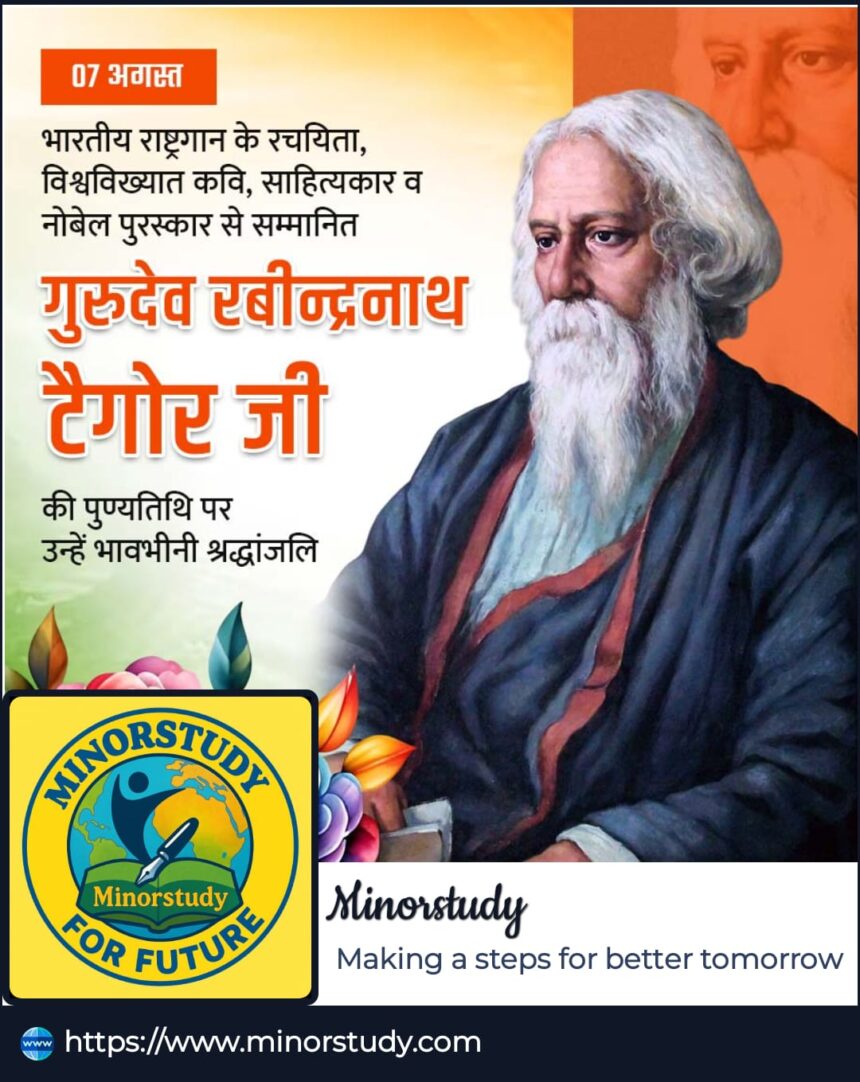10 Inspiring Facts About Gurudev Rabindranath Tagore That Will Touch Your Heart
Rabindranath Tagore — the poet, philosopher, musician, artist, and the first Asian Nobel laureate — is not just a name in Indian history but a living spirit of creativity, humanity, and vision. Affectionately called “Gurudev”, Tagore’s works transcend boundaries of time, language, and culture. His writings have the power to awaken the soul, inspire the mind, and remind us of our shared humanity.
- History of Gurudev Rabindranath Tagore
- 10 Interesting Facts About Rabindranath Tagore
- Timeline of Gurudev Rabindranath Tagore’s Life
- Significance of Rabindranath Tagore’s Work
- Observance and Celebrations
- Wishing on Rabindranath Tagore Jayanti
- Importance in Our Life
- Impact on Daily Life
- FAQs About Rabindranath Tagore
- Conclusion
In this article, we will dive deep into his history, remarkable facts, FAQs, timeline, significance, wishes, daily life impact, and importance to society — all in a human-friendly tone that honors his legacy.
History of Gurudev Rabindranath Tagore
Rabindranath Tagore was born on May 7, 1861, in Jorasanko Thakur Bari, Kolkata, into a culturally and socially active Bengali family. His father, Debendranath Tagore, was a religious reformer and philosopher, and his mother, Sarada Devi, instilled in him a love for art and music.
From a young age, Tagore was immersed in literature, music, and nature. His formal education was unconventional — he disliked the rigid schooling system and preferred self-learning. He later studied law in England but returned to India without completing his degree, devoting himself to literature and social work.
He penned Gitanjali (Song Offerings), a poetic masterpiece, which won him the Nobel Prize in Literature in 1913, making him the first Asian to receive this honor. Beyond poetry, he wrote novels, plays, essays, short stories, and over 2,000 songs, including India’s national anthem “Jana Gana Mana” and Bangladesh’s “Amar Shonar Bangla”.
Tagore founded Visva-Bharati University in Santiniketan, promoting a blend of traditional Indian and modern Western education. His life’s mission was to awaken the human spirit, inspire harmony among cultures, and fight against narrow nationalism.
He passed away on August 7, 1941, but his legacy continues to inspire millions worldwide.
10 Interesting Facts About Rabindranath Tagore
First Asian Nobel Laureate – Awarded the Nobel Prize in Literature in 1913 for Gitanjali.
Composer of Two National Anthems – India’s “Jana Gana Mana” and Bangladesh’s “Amar Shonar Bangla” were both written by him.
Knighted and Returned the Title – He was knighted by the British in 1915 but returned it in protest against the 1919 Jallianwala Bagh massacre.
A Prolific Artist – Took up painting in his 60s and produced over 2,000 artworks.
Global Influence – Met and exchanged ideas with world figures like Albert Einstein, Mahatma Gandhi, and H.G. Wells.
Visva-Bharati University – Established a world-class educational institution based on cultural unity and holistic learning.
Advocate of Women’s Rights – His writings often challenged societal norms and championed gender equality.
Polyglot Writer – Wrote in Bengali and English with equal mastery.
Cultural Bridge – His works brought Indian literature to the global stage.
Ever Relevant – His songs and poems are still recited, sung, and studied across generations.
Timeline of Gurudev Rabindranath Tagore’s Life
| Year | Event |
|---|---|
| 1861 | Born in Kolkata. |
| 1878 | Traveled to England to study law. |
| 1901 | Founded Santiniketan school. |
| 1913 | Won the Nobel Prize in Literature. |
| 1915 | Knighted by the British government. |
| 1919 | Returned knighthood after Jallianwala Bagh massacre. |
| 1921 | Established Visva-Bharati University. |
| 1941 | Passed away in Kolkata. |
Significance of Rabindranath Tagore’s Work
Rabindranath Tagore’s contributions go far beyond literature — his work touches every aspect of human life:
Literary Brilliance – Elevated Indian literature to a global platform.
National Pride – Authored national anthems that inspire patriotism.
Education Reform – Pioneered a holistic learning approach blending Indian traditions with global exposure.
Cultural Unity – Advocated for harmony among different communities.
Moral Awakening – Encouraged society to rise above prejudice and narrow nationalism.
Observance and Celebrations
Rabindranath Tagore Jayanti, celebrated every year on May 7, honors his birth anniversary. Schools, universities, cultural institutions, and literary circles across India and Bangladesh organize:
Poetry recitations
Rabindra Sangeet performances
Debates and essay competitions
Art exhibitions inspired by his works
Seminars on his philosophy and teachings
Wishing on Rabindranath Tagore Jayanti
Here are some heartfelt wishes you can share:
“May the words of Gurudev inspire your soul and guide your path towards wisdom and harmony.”
“Let us remember Rabindranath Tagore’s message of love, unity, and creativity on his birth anniversary.”
“Happy Tagore Jayanti! May you find beauty and purpose in every moment, as Gurudev taught us.”
Importance in Our Life
Tagore’s life teaches us:
To value creativity over conformity.
To see beauty in diversity.
To balance tradition with modernity.
To stand for justice even when it’s unpopular.
His message is as relevant today as it was a century ago — in a world divided by conflicts, his call for unity and humanism is more important than ever.
Impact on Daily Life
Even without realizing it, Tagore’s influence is present in our everyday lives:
Schoolchildren sing “Jana Gana Mana” every morning.
Rabindra Sangeet enriches our cultural festivals.
His stories and poems inspire moral values in literature classes.
His educational philosophy influences progressive schools.
FAQs About Rabindranath Tagore
Q1: Why is Rabindranath Tagore called Gurudev?
Because he was a revered teacher and spiritual guide whose wisdom inspired generations.
Q2: How many songs did Tagore compose?
Over 2,000 songs, collectively known as Rabindra Sangeet.
Q3: Did Tagore only write poetry?
No, he wrote novels, short stories, plays, essays, and composed music and paintings.
Q4: What is the significance of Visva-Bharati University?
It represents Tagore’s vision of a world where education is holistic, creative, and culturally inclusive.
Conclusion
Gurudev Rabindranath Tagore was not just a poet or a philosopher — he was a soul who belonged to the world. His thoughts, music, and art continue to inspire us to seek truth, beauty, and compassion.
By remembering him, we don’t just honor history; we carry forward his dream of a better, more united, and creative humanity.









I am not real excellent with English but I line up this really easy to translate.
Real wonderful info can be found on site.
I’ve read some just right stuff here. Definitely price bookmarking for revisiting. I surprise how much effort you place to make one of these wonderful informative website.